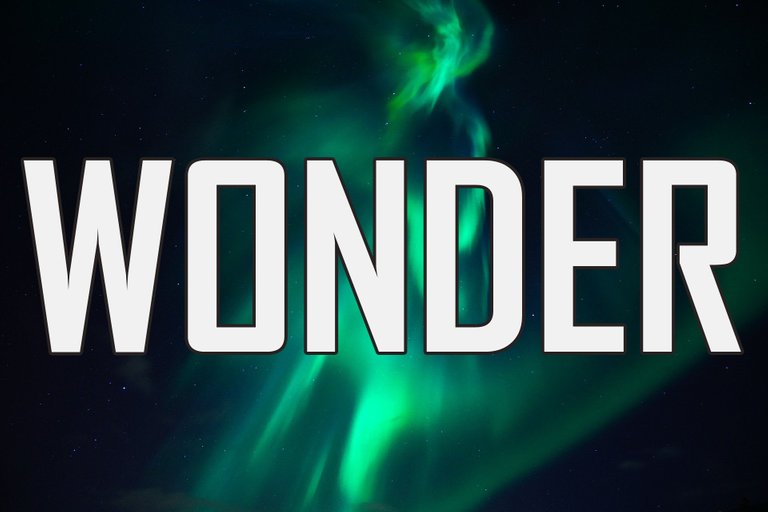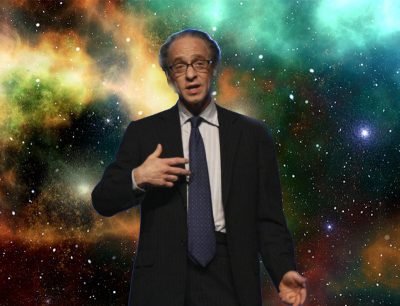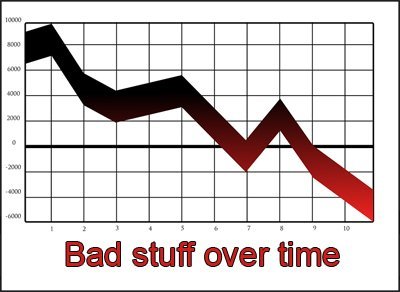
Something wonderful is about to happen. I don't know when, or how, or even what, but I can feel it approaching, like the calm before a sweet summer storm, the thunder gently cracking over the hills.
Yes, something wonderful is going to happen, and the more I read, and the more diverse my readings, the more I learn about science, technology, economics, politics, dreams, shamanism and even the UFO phenomenon, the more a peculiar and brilliant vision of the future starts to come into focus.
By now, many have heard of the idea of a technological singularity, the idea that computers are becoming smarter exponentially, and will soon overtake humanity. These advancements are not limited to technology, but are also available in the fields of interpersonal and intrapersonal knowledge and skills. In other words, humanity is on the verge of entering a new spiritual age, with cosmic consequences relating to our knowledge of our place in the universe, and thereby altering our role in the universe.
A Technological Singularity

If you're not familiar with the work of Raymond Kurzweil, the short version is, he's an inventor and futurist who has become very rich by positioning his companies to take advantage of new technology in the year it arrives - "going where the ball is going to be". One notable example was the visual text to speech device, the Kurzweil Reading Machine, which he released in 1975.
Kurzweil states that the growth of technology is now exponential, and so its trajectory is difficult to predict for most of us. Only in 1997 did Deep Blue defeat chess grandmaster Garry Kasparov, a feat once thought impossible. In the near future, perhaps 2045, machine intelligence will surpass human intelligence - which will be a very strange point in history indeed.
In fact, exponential advances aren’t limited to technology. The technology is built for humans, and so it must spill into other aspects of our lives. There is more information available than ever before, and people are freer than ever before to explore it and form connections, drawing relationships between ideas which once seemed to have no connection whatever.
Rapid Synthesis of Information
When YouTube started to gain popularity, one key battle of ideas began between two large contenders - Christianity and atheism. Personalities such as The Amazing Atheist and ArmouredSkeptic discussed the arguments, and eventually, in this public arena, atheism won. They demystified the myths, pointed out the contradictions in the Bible, and made a solid case that there is little intellectual evidence for the existence of God.
The backdrop of cold, hard atheism set the scene for a re-analysis of myths by figures such as Jordan Peterson and John Vervaeke, drawing on the works of Carl Jung and others, asking questions like: How is our language and culture still affected by the philosophy of Christ? What rules or other good ideas can we still carry from the old stories and the sages? And how can they even be reinforced moving into the future?
In this age of widely distributed information, where millions of people can use their voice, cultural progression and synthesis of ideas can happen very rapidly. Therefore, it is likely that we will also see a cultural singularity - perhaps a point where all of the major traditions are synthesised. Of course, one could argue that this has already occurred, when Jung and later Campbell described the underlying “monomyth” of every culture.
Angels of Our Better Nature

According to the work of Steven Pinker, the world is consistently getting better. Looking at murders and other violence over the long term, there is a clear downward trend. TV and other media still try to convince us that the world is a horrible place, but more and more people see through that.
We can guess that people now find violence distasteful by looking at the public relations around the industry of violence. The department of war became the department of defense. Torture is now labelled “enhanced interrogation”, and civilian massacres are “collateral damage”. Killing is no longer palatable, and so when it is committed in an official capacity it is often obscured from view.
If the violence is going down, it’s likely that something else is going up. The decrease in violence must mean an increase in things like empathy, friendship, compassion, understanding, rationality - even open-mindedness.
At some point that must also reach some threshold, some singularity of peace. For example, a point where more people focus on making the world peaceful than making it more violent, or where murder drops to zero. There are already 10 countries with a murder rate of zero, including Liechtenstein and Monaco.
The Economics of the Information Age
In the book, "The Sovereign Individual" by James Dale Davidson and William Rees-Moog, the case is made that grand political conditions are changing, eventually leading to a world where nation states are no longer relevant. The book, published in 1997, says that the industrial era was given rise by the advent of gunpowder, which made the prevailing military technology - armoured cavalry and castles - obsolete. That allowed the rise of centralised places that were easy to tax, such as factories, that also required protection of a large state.
Now manufacturing has a diminished importance in developed economies, and you don't need hundreds of employees to form a company. Tech start-ups can build a prosperous business with just a handful of people, and they can also incorporate in a variety of jurisdictions - Costa Rica, Panama, or even using Estonia's e-residency program.
Companies don't even have to accept national currency any more. They can decide to accept only cryptocurrency - as predicted in the book - and practising careful security protocols puts their finances out of the reach of any state. That means nation states will be at once powerless to tax, and powerless to protect from thieves. Without those two key factors, it becomes much less likely that nation states will survive - perhaps allowing smaller city states and other corporations to take care of citizens, treating them more like customers than cattle to be placated and milked.
The Sovereign Individual makes the case that we will see secession much more frequently in coming years, with Quebec breaking from Canada and Veneto breaking from Italy by 2025. My esteemed co-host of the Multiversity Project, Arielle Friedman, once lived in Quebec and was involved in radical movements there, and sees that timeline of Quebecois independence as unlikely.
However, Venetian independence has a large amount of public support, with a national poll showing at least 56% public support - perhaps even as high as 89%.
In Spain, there is the Catalan independence movement, along with other smaller movements. Spain began as a collection of kingdoms, and today each still retains its own culture, and in the case of Catalonia, its own very actively spoken language. When the Catalan government planned a referendum to vote for secession, the national government seized ballot papers and mobile phones, threatened fines of €300,000 for polling booth operators, and demanded that Google remove an app for finding voting locations.
The result of the referendum was 92% in favour of secession, though the turnout was only 43%. The Spanish government again responded with force. They arrested several members of the Catalan government, and issued warrants for others. Many fled to other parts of Europe to escape prosecution, including former President Puigdemont who now resides in Belgium.
Although the Catalan case failed for now, the shocking and anachronistic decision to arrest the democratically-elected dissidents, and the images of police violence against voters, highlights how difficult it is for a nation state of 47 million to retain control in this modern world, while maintaining good public relations.
Once one secession movement in the developed world secedes, many others will look to it as a model, or at least take greater confidence from it, leading to a domino effect of secessions - much like runners beating the four minute mile after seeing the example of Roger Bannister.
A subtler form of secession is happening in the United States - de facto secession. Cannabis is prohibited by federal legislation, but in 10 states and some territories, it is legal for recreational use. Furthermore, the cities of Denver, Colorado, and Oakland, California, have decriminalised possession of psilocybin mushrooms, again defying the federation. The more the states openly defy the federal government, the less authority it has in the minds of the public, and in fact.
According to Davidson and Rees-Moog’s case, a change of epochs is afoot, the transition from industrial age to information age. Much power will shift hands, away from centralised and highly hierarchical institutions, and into the hands of individuals and adaptive communities.
Next Time
Tomorrow I'll publish the second half of this article, going deeper into stranger types of knowledge that have become more obvious, such as martial arts, the power of dreams, psychedelics, magick, and knowledge of extraterrestrials.
Notes and acknowledgements
I originally published this article on The Multiversity Project website.
Original title image by Hans Braxmeier from Pixabay